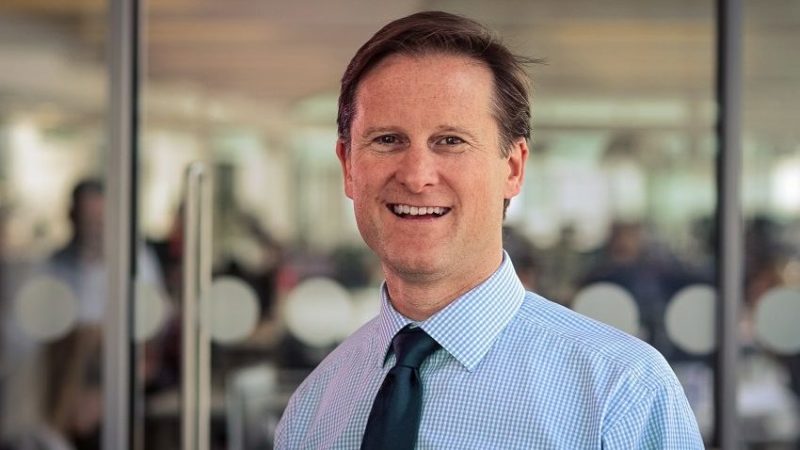Hargreaves Lansdown chief executive Chris Hill has hit back at criticisms of its high charges saying it is actually advisers who charge premium pricing while the D2C platform is using its negotiating might to bring down the cost of investing.
Speaking at a media briefing to announce the launch of the Wealth 50, Hill said the Hargreaves platform charge, which is 0.45% on the first £250,000 invested, actually comes down to 0.23% when the discounts it negotiates with fund groups is taken into account.
The platform today announced its influential buy list has been revamped as the Wealth 50 with average ongoing charges discounts on constituent funds ramping up from 0.09% in the former Wealth 150 to 0.22% in the new streamlined list.
Facing claims of hypocrisy over its criticism of Fundsmith charging a 1.05% OCF on its Equity fund, which remains excluded from the Wealth 50, Hill turned his attention to advisers.
“What Hargreaves Lansdown has done for a number of years has driven down the overall cost of investing. Not only has it driven down the overall cost of investing but it is also, all the time, improving the level of service that people can get,” he said in response to questions about when Hargreaves would bring its platform charge down.
“If you’re being advised to be put into selective funds and you’re paying 2% a year – why? We’re now giving people the ability to do that for about 1%.”
The average OCF of funds in the Wealth 50 is 0.5%, which, combined with the Hargreaves service fee of 0.45%, takes the total cost of investing to 0.95%.
Platforum head Jeremey Fawcett said: “If you buy into the value that Mark Dampier’s team adds, then the relatively expensive platform fee is worth paying because the discounting on the W50 funds offsets it. Those who don’t want to use the list may decide that HL is not for them.”
‘It’s the advisers that have premium pricing’
Hill continued: “You used to go to the adviser when you had questions you didn’t understand you could raise and you could ask. We’ve got 300 people on the help desk; they’re doing 1.5 million calls a year, they’ll answer with three or four seconds and give you an answer straight away. You’ve got the continuing research analysis you used to get from advisers. All of that is us investing.
“So when you talk about us charging premium pricing, it’s the advisers that have premium pricing. What we’re doing is providing the knowledge and confidence to make it easier for people to be able to do it for themselves.”
Hargreaves is filling the gap where savers are reluctant to pay for advice, he added. “You listen to people calling into the help desk, you hear pensioners, who’ve got quite a detailed knowledge of pension regulation, what they’re allowed to do, what they’re not allowed to do, that’s what you used to rely on an adviser to tell you. But actually people can do it and are doing it for themselves.”
Fidelity don’t even register as competition
Despite having a platform charge of 0.35%, 10 basis points lower than Hargreaves, Hill said Fidelity’s Fundsnetwork was not competitive with Hargreaves.
“Hargreaves Lansdown at 45bps plus the discount, we’re down at 23bps, so I don’t even recognise that as competition.”
But Lang Cat founder and managing director Mark Polson said: “I would expect Chris Hill to portray himself in the best light possible. Hargreaves Lansdown is a 45-basis-point platform. And if you only use funds that have very deep discounts, then yes, the overall cost becomes more reasonable.
“Half the assets on Hargreaves is not in those funds and realistically investors are likely to have a big mix of things so the real picture is a bit more nuanced. HL has done an amazing job in resisting price pressure and the one thing none of us know is when that will eventually start to tell. And when will it start to feel it needs to bring its part of the equation into play when it comes to total cost.”
Polson said it was inevitable that Hargreaves pricing would eventually buckle under pressure. “You can retain a premium price for only so long and then eventually the market starts to level out. Other people can do the same things as you. I’m sure it won’t be immediate, but for my money the day will come.”
Hill admitted at the media briefing that Hargreaves’ pricing would come down. “Overall I think that cost is going to come down as technology plays through even more and nowhere more so when you compare the self-directed versus the advised market. Because you used to go to advisers because you didn’t want the hassle of the paperwork. It’s all done on the platform now.”






